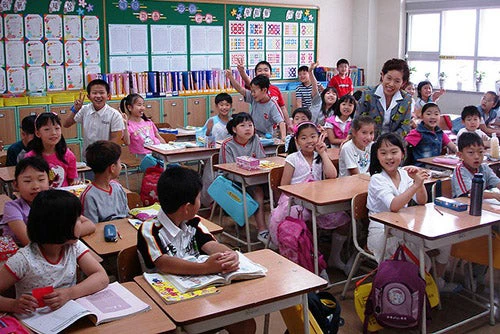Stefano Scarpetta is Director of Employment, Labour and Social Affairs at the Organisation for Economic Co-operation and Development (OECD).
In the world’s richest countries, those with greater inequality in skills proficiency also have higher income inequality, according to the first OECD Survey of Adult Skills (also known as PIAAC), which measures the skills of 16-65 year-olds across 24 countries. The OECD's Stefano Scarpetta (Director of Employment, Labour and Social Affairs) tell us that this is the first ever comprehensive survey of the actual competencies of OECD adult workers.
Other key results include:
- Reading: Over 1 in 5 adults in Italy (27.7%), Spain (27.5%), and France (21.6%) perform at or below the most basic level, compared with 1 in 20 Japanese (4.9%) and 1 in 10 Finns (10.6%).
- Numeracy: Almost 1 in 3 adults in Italy (31.7%), Spain (30.6%), and the United States (28.7%) perform at or below the most basic level of numeracy, compared to around 1 in 10 in Japan (8.2%), Finland (12.8%), and the Czech Republic (12.8%).
- Digital divide: Millions of adults are failing to master even simple computer skills (like a computer mouse) – ranging from nearly 1 in 4 in Italy, Korea, Poland, the Slovak Republic, and Spain, compared to 1 in 14 in the Netherlands, Norway, and Sweden.
Scarpatta stresses that the report finds that building skills matters greatly. In fact, the low-skilled are more likely than others to be unemployed, earn much less, and even have bad health. And the median hourly wage of workers scoring at the top levels (levels 4 & 5) on the literacy scale is on average 61% higher than that of workers scoring at or below Level 1.
As for the country that has made the most progress in recent decades in building skills, that honor goes to Korea: 55-65 year-olds are well below the OECD average, while 16-25 year-olds are well above it. But he notes that building skills is only the first step – using those skills is another, and in that area, Korea still has a ways to go (especially in employing skilled women). Given the low levels of actual competences of adults in the labor market, it is crucial to invest in life long-learning, developing public-private partnerships for on-the-job training and retraining for jobseekers.



Join the Conversation